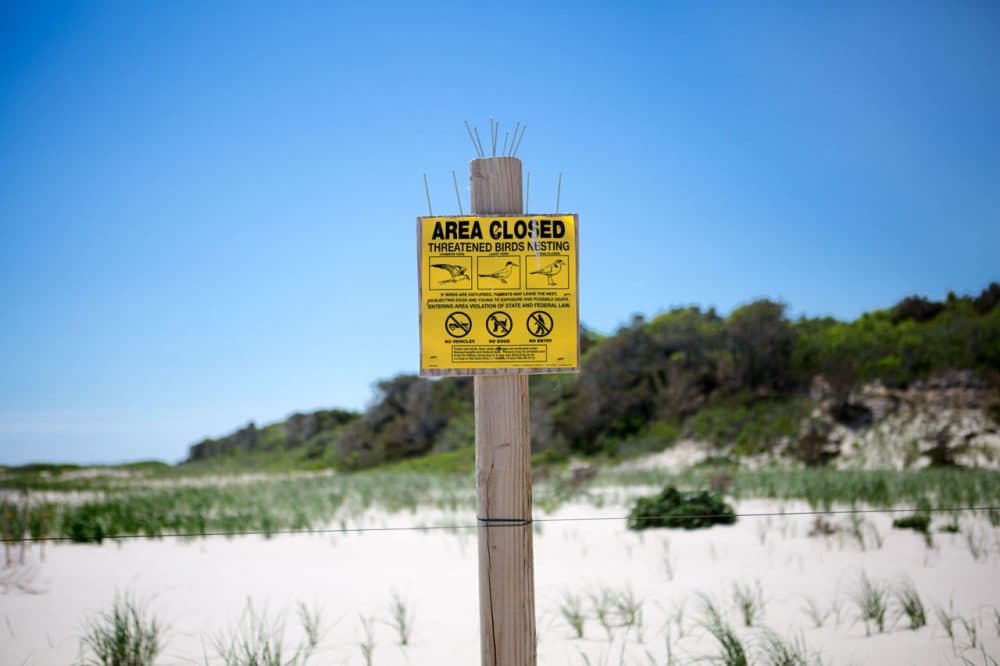Advertisement
Nauset Beach Opens Off-Road Vehicle Trails Ahead Of New Plover Conservation Plan

The off-road vehicle trails at Nauset Beach in Orleans are now open for the first time this summer.
Beach managers on Wednesday opened up trails south of Nauset Beach, an area where piping plovers, a federally protected species, nest. The opening of the trails comes ahead of the implementation of the town's new habitat conservation plan (HCP) — which will continue to give visitors access to the trails through a self-escorting program through the birds' habitat.
It's a plan backers say provides a necessary balance between protecting the endangered birds and allowing visitors to access the area. Over the years, beaches across the state like Nauset have had to close down for long stretches of time in the summer due to efforts to protect the piping plovers.
The new program, however, can only be implemented if there are no more than two broods of plovers with chicks that have not yet fledged, or developed the ability to fly. The trails were opened to off-road vehicles without restriction Wednesday because right now there are no chicks that can't fly. But there is still one brood of plovers in the area that re-nested late in the season, with new chicks expected to hatch by the end of the week.
Normally that would keep the beach closed, but not this year.
"Once this final nest hatches out will be the time when the HCP permit will be triggered and that’s when the self-escorting will begin," said Nate Sears, the natural resources manager for Orleans.
When that last nest hatches, the beach will be closed again for 24 hours to give the chicks a day to adjust, Sears said. After the 24-hour period, the habitat conservation plan will be implemented and the beach will reopen with the self-escorting program in place.
The program allows up to 180 off-road vehicles to access the area in the morning from 8 a.m. to 10 a.m. The vehicles can then leave the beach from 4 p.m. to 6 p.m. Each vehicle will be required to have someone 16 or older walk in front of the vehicle through the protected areas to watch for plovers. Bird monitors will keep a close eye on the chicks throughout the program.
Sears and his team are currently monitoring the last nest to see when it hatches. He says there is a chance the nest will not hatch because it's biologically harder for the birds to have successful broods this late in the season. If it doesn't hatch, the self-escorting program will not be needed. But if it does, the program will allow the town to open up this stretch of beach earlier than in previous years, Sears said.
"This is the perfect scenario of what keeps the beaches closed year after year late into the season," Sears said. "Without the HCP permit this last remaining brood would keep the beach closed for about another month while we waited for the chicks to fledge. So being able to drive by this one remaining brood with the HCP permit is essential for us getting the beaches open almost a month earlier than usual."
Orleans is the first town along the Atlantic coast to have a federally approved habitat conservation plan and permit, according to the U.S. Fish & Wildlife Service. The agency is currently working with Massachusetts on a statewide habitat conservation plan that would give towns across the state more flexibility to implement their own plover conservation plan.
